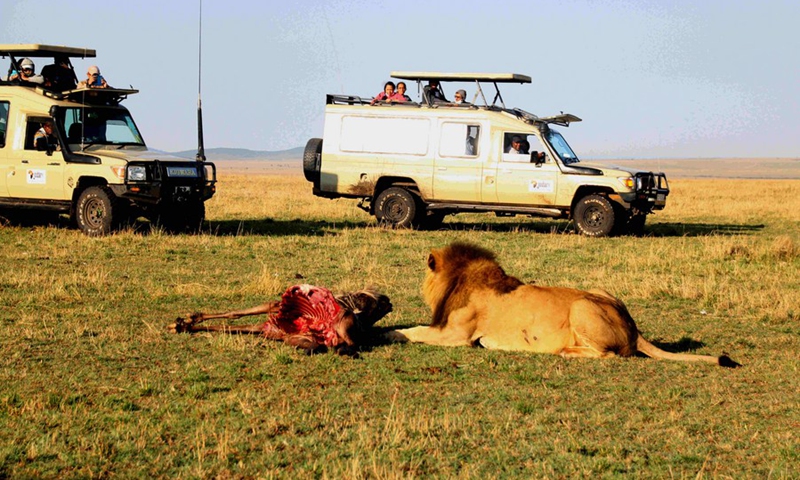African lobbies call for end to captive breeding of lions as threats intensify
 0 Comment(s)
0 Comment(s) Print
Print E-mail Xinhua, May 12, 2022
E-mail Xinhua, May 12, 2022

The captive breeding of lions to meet the rising demand for alternative medicine and ornamental industries should be halted in order to save the majestic carnivore that roams African jungles, lobby groups said on Wednesday.
The World Animal Protection and Blood Lions said in a joint statement issued in Nairobi, the Kenyan capital, that cruelty meted out on lions in captivity was a reason to halt the practice and allow them to roam freely in their natural habitats.
Edith Kabesiime, the wildlife campaigns manager at World Animal Protection said that legislation should be enacted to ban caging of lions on commercial farms amid threat to their physical and emotional health.
According to Kabesiime, the survival and welfare of lions and other iconic carnivores in Africa was in jeopardy amid caged rearing, trophy hunting and habitat loss.
She urged African governments to support community-driven conservation of lions as opposed to captive breeding that was fueling the spread of pathogens.
Kabesiime lauded South Africa in its pledge to phase out captive breeding of lions adding that a ban on trade in their parts including bones could aid efforts to boost their population in the wild.
A joint study by World Animal Protection and Blood Lions, an advocacy group, that was published in early May noted that breeding lions in a captive environment undermined their health and comfort.
Based on data collected from South Africa's commercial lion farms, the study concluded that captive breeding contravened global best practices on protecting the carnivores from human-induced and climatic threats.
"It is clear from review of scientific literature available that a multitude of animal welfare challenges are associated with caring for lions in captivity," said the study.
Louise de Waal, the director of Blood Lions said that captive breeding, poaching, habitat loss and fragmentation posed an immense threat to the survival of the big cats despite their contribution to tourism and ecological balance. Enditem






Go to Forum >>0 Comment(s)